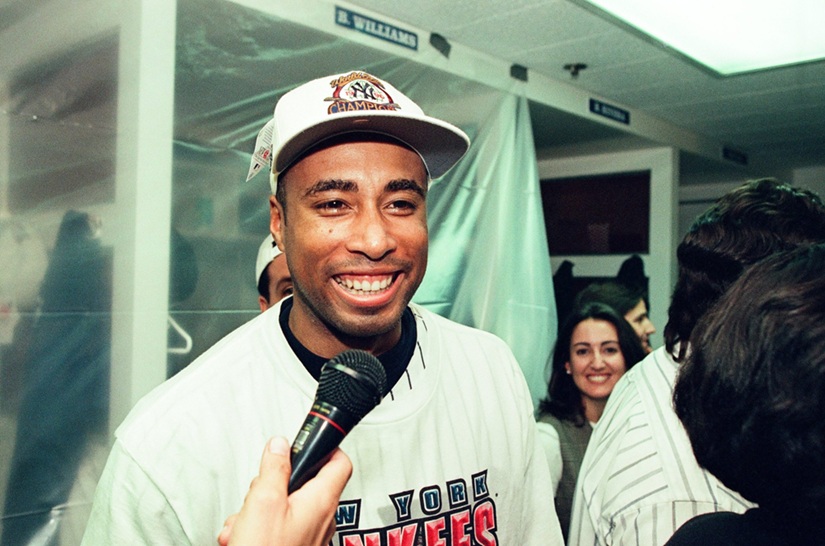From the outside, the football world looks upon Major League Soccer with a degree of suspicion and mistrust. Traditional American sporting models, we claim, don’t apply to football. Central ownership and the draft system are entirely foreign concepts. Pundits criticise salary capping in MLS one minute and bemoan the overpaid prima-donnas of Europe the next.
The idea of a post-season is one with which European footballites are naturally uncomfortable, but it also poses a question for MLS and American football itself.
Despite the ultimate title of Champions being afforded to the team which triumphs after a short knockout tournament between eight qualifying clubs, it’s only natural for the team finishing top of the table to take a lot of pride in their achievement. After all, football the world over is about finishing at the summit after a long, arduous and rollercoaster-like season. In the playoffs extra factors come into play, such as end-of-season momentum and luck. The “league winners” can rightly feel aggrieved at having to further prove their mettle. The real glory comes from winning the final of MLS Cup – but should that be the case?
The American system
There is no escaping the fact that Major League Soccer follows an unusual format, some of it made necessary by the league’s development and expansion. The league’s fifteen sides are divided into two conferences, Eastern and Western, and they each play each other twice. That adds up to 28 matches each, made up to 30 by an extra two by what Wikipedia refers to as “intra-conference matches”. Each team plays 15 games at home and 15 away – nothing out of the ordinary there.
But after those 30 matches, the post-season begins. Eight teams qualify for the playoffs: the top two in each conference qualify automatically, followed by the next four teams on points. This can bring in the relative strength of each conference. The final of the post-season mini-tournament is a one-off match known as MLS Cup, and is the pinnacle of club football in the United States.
But there is another accolade available to MLS teams, one more familiar to the European brain. The Supporters’ Shield goes to the club finishing the regular season with the most points on the board. It may not hold the prestige of MLS Cup but it is rightly given a certain amount of recognition.
MLS Cup
The importance of having an American system for an American league should not be underestimated. It’s not small time or protectionist, it’s a simple case of familiarity and trying to build a future in a competitive sporting market which is, to a certain extent, set in its ways. While many football fans in the US have readily adopted Major League Soccer and the outsider status that comes from being a soccer fan, the league needs to succeed more widely. That means attracting existing football fans – supporters of overseas leagues who are more familiar with a straight league system – or fans of other sports.
Given Don Garber’s comments this year indicating that the league wants to target existing football supporters, perhaps scrapping the playoffs would be a step in the right direction. But the American sporting mindset must come into consideration, particularly as those of a sporting bent will already have tied their colours to the established masts of gridiron, baseball and basketball franchises.
Furthermore, the 15 clubs in Major League Soccer begin the season knowing exactly what the situation is. It’s not as if Garber informs the league champions at the end of the season that they must play another handful of games to secure the title. They all know that it is not necessarily wise to go all-out for the top of the table. As we know from the Football League playoffs in England, the form team in the final throes of battle for promotion so often seem to be the one which snuck in at the end of the season – in other words, the team with momentum. Correctly timing momentum is a fine art.
MLS Cup also gives top-level US football a showpiece it is otherwise so sorely lacking. The US Open Cup isn’t held in the same regard as the rest of the domestic programme and so the league doesn’t have a prestigious final to help create history, romance and – perhaps most importantly to Major League Soccer’s busy suits – vital marketing possibilities. With the absence of a cup final to attract all comers, MLS Cup day is the day on which all eyes turn towards MLS. But is it the right way to earn victory? In 13 seasons only DC United (twice), Kansas City Wizards, Los Angeles Galaxy and Columbus Crew have won the Supporters’ Shield and gone on to win MLS Cup.
Supporters’ Shield
MLS Supporters’ Shield does possess a certain sheen, and is correctly seen as a source of great pride for the winners. The tendency for European fans might be to see the winners of the Supporters’ Shield as Major League Soccer’s true champions, but that is simply because the league system is so naturally familiar. Although we need to be careful not to impose some kind of footballing imperialism on the USA, there is an argument for standardising league football. William McGregor, the genius behind the Football League, certainly wouldn’t have approved of the playoffs, but then times have changed.
The Premier League’s recent run-in with supporters over Game 39 – its ludicrous proposal to force every club play a 39th regular season match overseas in order to expand the league’s brand in developing football markets – highlighted something we’d all taken for granted for more than 100 years: the integrity of symmetrical league football. Each club plays the others a fair number of times, equally divided between home and away, and the winner is the team which sits at the top of the pile when the process is complete. When that came under threat, we suddenly became protective of it, and on reflection we were probably right to do so.
But, as I’ve already mentioned, Major League Soccer’s gradual development makes it a special case. The league programme is not strictly symmetrical anyway, so is a Supporters’ Shield win “pure” in the same way as victory in La Liga or Serie A? Maybe MLS Cup’s greatest contribution to American football is that it gives the league one final shake to even out the creases of an uneven fixture list. Perhaps that justifies its position at the top of the honours ladder.
European football thinking should not be allowed to run roughshod over the will of a burgeoning league but the league system is the way it is for a reason: fairness and equality over a season. Perhaps a better domestic knockout cup would provide US soccer with a showpiece event and in five or ten years’ time allow Major League Soccer to revert to a pure league system and scrap the playoffs. But by that time MLS Cup will be a longstanding tradition in its own right, and if there’s one thing that’s able to convert football’s steady rise in the USA it might just be a sense of history.
Chris Nee writes at twofootedtackle and co-hosts the twofootedtackle podcast.
Add Sportslens to your Google News Feed!






